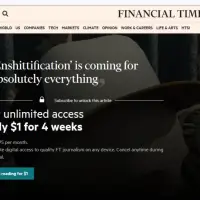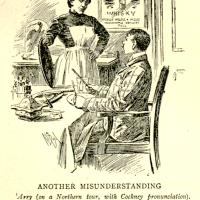 Sometimes it is hard to know what God wants.
Sometimes it is hard to know what God wants.
Set aside for a moment the strengths and weaknesses of the new film adaptation of Noah featuring Russell Crowe. And leave for another day the questions of myth and history, of Hollywood racism and stereotyping, of speaking into the American culture war, of death and judgement in an age of peace, and of biblical integrity and the realities of adaptation in storytelling. I haven’t read any reviews or blogs, but I presume that’s what people are talking about. Those are good questions, but the idea that came home to me in watching Noah is this: sometimes it is hard to know what God wants.
Somewhere in my heathen childhood or my earliest years as a Christian I had turned the Noah tale into digital flannelgraph images in my mind. Noah became a static character, receiving a most terrible word from God and simply doing it. I stripped away all complexity, the question of suffering and doubt. I didn’t even look at my own life and ask the question, “how does God speak?”
 In Noah, Russell Crowe is already living after the apocalypse. Noah’s world still has some of the magic of Eden within it, a mythical past where the lid of earth is still very close to heaven. But earth has been broken. Evocative of that 70s cult classic Mad Max, humanity has stripped the earth of all vitality, leaving a desolate wilderness filled with wandering hordes of warlords. Women, like the lands themselves, are for the subjugation of men and dominion of men. This industry of man has ruined all, and humanity slips away from the community of men.
In Noah, Russell Crowe is already living after the apocalypse. Noah’s world still has some of the magic of Eden within it, a mythical past where the lid of earth is still very close to heaven. But earth has been broken. Evocative of that 70s cult classic Mad Max, humanity has stripped the earth of all vitality, leaving a desolate wilderness filled with wandering hordes of warlords. Women, like the lands themselves, are for the subjugation of men and dominion of men. This industry of man has ruined all, and humanity slips away from the community of men.
Against this darkness stands the nomadic family of Noah. This family skirts the edges of the collapsed civilization, avoiding a pre-historic culture that had made sophisticated machinery to produce mines, buildings, cities, clothing, metallurgy and weaponry (all of which is implicit in the film). They are historically rooted, formed around their family heritage back to Adam and an ethic of living in the world with love for one another and consideration for the very limited resources they possess.
 There are moments when the film is a bit preachy about Noah’s lifestyle, but the desperation is palpable. Something has to give, and it does, beginning with a dream from the Creator. This dream begins a pilgrimage to find Noah’s lost Grandfather, Methuselah, a witty mage played by Anthony Hopkins. This journey begins the re-creation of the world.
There are moments when the film is a bit preachy about Noah’s lifestyle, but the desperation is palpable. Something has to give, and it does, beginning with a dream from the Creator. This dream begins a pilgrimage to find Noah’s lost Grandfather, Methuselah, a witty mage played by Anthony Hopkins. This journey begins the re-creation of the world.
As it turns out, re-making the world includes the heartbreaking project of unmaking it. Not by fire, as in nature’s reseeding of an ancient forest, the re-creation will be the irrigation of the desert. Beneath the burnt cities and dry soil are the seeds of Eden, which God will water. Rather than begin the forward course of the world again with only vegetation and the beasts of the seas, the Creator calls Noah to save the animal kingdom in a vessel of safety. All of humanity, save Noah’s family, will be wiped out. The bloodthirsty Cain’s line will end forever.
But, sin crouches at the doorstep of every generation and every human family. The Creator calls Noah to the task, providing miraculous means to reseed the world. But God is silent about humanity. The visions are not clear about whether Noah’s family will restart the line of Seth, or if Noah’s youngest son will be the last man alive, a shepherd born to die. As “civilized” humanity panics in the collapse of their world, turning to bestial violence, Noah despairs of humanity altogether. He concludes that God wants Eve’s children to pass away. Committed to the One who gives life and provided the miracle of re-creation, Noah stands strong against the crashing wave of violence that falls upon the ark in the dying moments of the antediluvian world.
 We shouldn’t be surprised that people panic at the sinking of Atlantis. But the tension in the story is not so much the violence without, but the violence within. As the earth floods, the violence is swept away. And yet that seed too is upon the ark. With each act of destruction within his little world, Noah feels confirmed that his family must pass away when the ark finally comes to rest. And weighed down with the passive murder of hundreds, Noah threatens the murder of those he loves so very much.
We shouldn’t be surprised that people panic at the sinking of Atlantis. But the tension in the story is not so much the violence without, but the violence within. As the earth floods, the violence is swept away. And yet that seed too is upon the ark. With each act of destruction within his little world, Noah feels confirmed that his family must pass away when the ark finally comes to rest. And weighed down with the passive murder of hundreds, Noah threatens the murder of those he loves so very much.
All throughout, Noah looks to the heavens but the Creator is silent, speaking only in portents that simply confirm what is already in one’s heart. So with each miracle that Noah’s family witness, they see possibility from the Creator. But with each of those miracles, Noah is confirmed in his intention to follow through with God’s judgment upon the world. It is hard to know what God wants sometimes. Noah sets his heart to violence.
Now, don’t be tempted to judge Noah too swiftly—just another fundamentalist bent on violence. Have you not seen this complexity in your own world? You have read,
He has shown you, O mortal, what is good.
And what does the Lord require of you?
To act justly and to love mercy
and to walk humbly with your God. (Micah 6:8, NIV)
 It is simple enough: justice, mercy, humility. And yet each time you purchase coffee or buy clothing for your children, you participate in an economic system that keeps the weakest in poverty. Withdraw from that system and you leave the poor without any means. House pets bring great joy and healing, and yet North America’s pets use precious fish and grain resources that could feed others. Anyone who has committed his or her life to another knows how difficult it is to humbly uphold justice and mercy when you are late for work. Now imagine that family under threat.
It is simple enough: justice, mercy, humility. And yet each time you purchase coffee or buy clothing for your children, you participate in an economic system that keeps the weakest in poverty. Withdraw from that system and you leave the poor without any means. House pets bring great joy and healing, and yet North America’s pets use precious fish and grain resources that could feed others. Anyone who has committed his or her life to another knows how difficult it is to humbly uphold justice and mercy when you are late for work. Now imagine that family under threat.
Sometimes it is hard to know what God wants.
 In my own life, our family felt like God wanted us to adopt internationally. We chose Ethiopia, and with the help of our church family pulled together $15,000 to begin the adoption. We bought a home and changed jobs and filled out endless forms as we waited the months for the chance to hold a little girl in our arms. Of 4.8 million orphans in Ethiopia, we thought we could love one who was forgotten by everyone else. Isn’t this what true religion is, the orphan coming home?
In my own life, our family felt like God wanted us to adopt internationally. We chose Ethiopia, and with the help of our church family pulled together $15,000 to begin the adoption. We bought a home and changed jobs and filled out endless forms as we waited the months for the chance to hold a little girl in our arms. Of 4.8 million orphans in Ethiopia, we thought we could love one who was forgotten by everyone else. Isn’t this what true religion is, the orphan coming home?
But it was not to be. Our adoption funds were mismanaged, used by someone for her own personal gain. Even with a national campaign and thousands of dollars more, the bureaucratic distance between the orphan and our home only grew. It never happened.
 What is God’s will there? I’m sure for some God’s will is always crystal clear. But for me, it is hard to know what God wants sometimes. Many times. God speaks in many ways, each as difficult to discern as the last.
What is God’s will there? I’m sure for some God’s will is always crystal clear. But for me, it is hard to know what God wants sometimes. Many times. God speaks in many ways, each as difficult to discern as the last.
So it is with Noah. Noah’s journey is not just the saving of animals, but test to see if he can hear the other ways that God is speaking. Jennifer Connelly’s compelling performance as God’s voice makes up for the film’s weaker points. God speaks not only in the tradition passed on to us, or in the prophet’s vision, but also in others who struggle along the path.
Whatever other strengths and weaknesses it might have, Noah is a parable of what it means to strain to hear God’s voice. We have the constant temptation to take the human stories in Scripture and cut them out in nice little pieces. This film doesn’t allow us to do this, for it admits that sometimes it is hard to know what God wants.





















